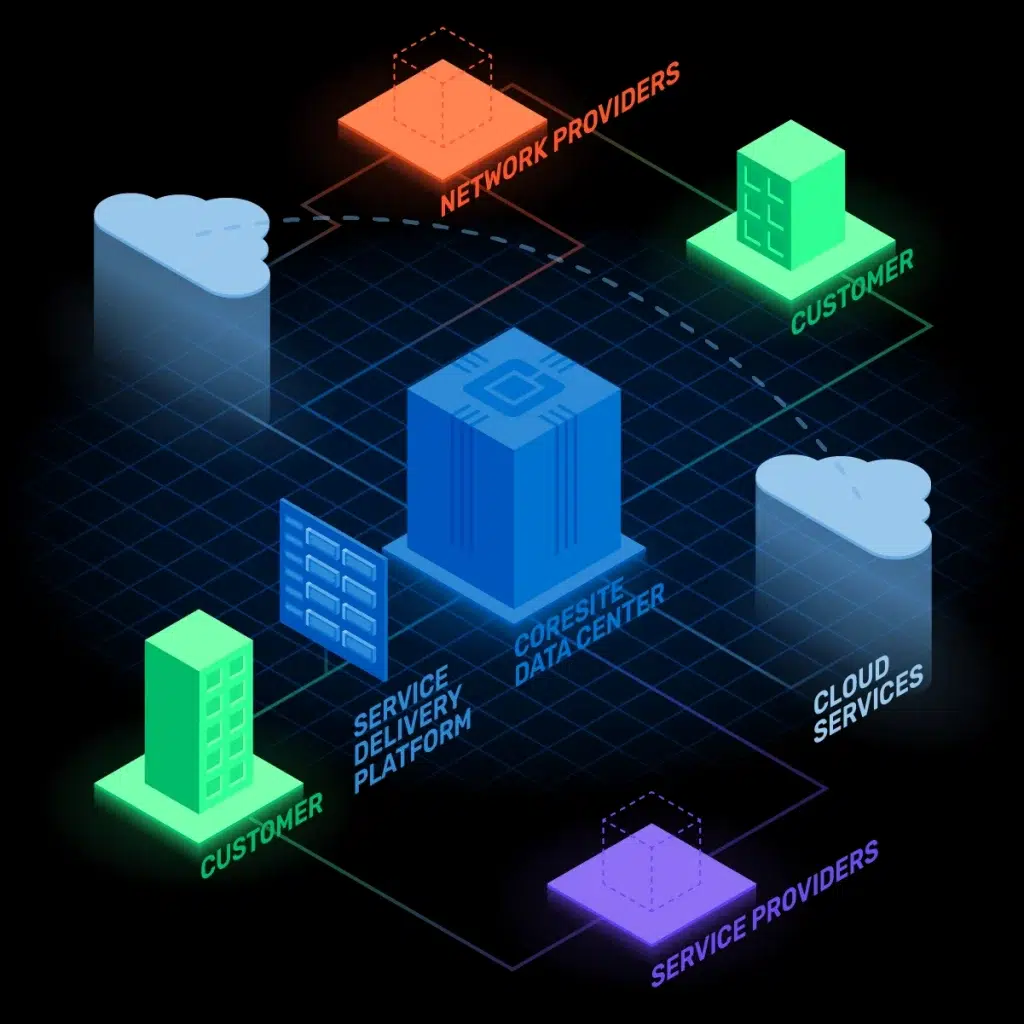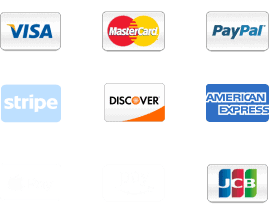In today’s cloud-driven world, businesses need to stay connected to multiple cloud services seamlessly, securely, and reliably. Cloud exchange platforms are a game-changer in making this possible, acting as a bridge between your on-premises infrastructure and various cloud service providers. Among the top platforms in this space are Equinix Cloud Exchange, CoreSite Open Cloud Exchange, and Digital Realty’s Interconnection Fabric. Each offers unique benefits, and deciding which one suits your business best can be a tough decision. Let me walk you through a comparison of these platforms based on my experience and insights.
What Are Cloud Exchange Platforms and Why Do They Matter?
First off, let’s clarify what a cloud exchange platform is. Think of it as a hub that allows your business to connect its own IT systems to various cloud service providers. This is crucial for companies that need to balance workloads across different cloud services or want to leverage the best features from multiple providers. Cloud exchange platforms simplify this process by providing a single point of access to these services, which can help reduce costs, improve performance, and enhance security.
The Importance of Cloud Exchange Platforms
At cloud exchanges like Equinix Cloud Exchange, CoreSite Cloud Exchange, and Digital Realty’s interconnect services, you can find a variety of telecommunications carriers and cloud service providers. Let’s take a look at some of these cloud exchanges and what kind of carriers they have at these locations:
Equinix Cloud Exchange:
Equinix Cloud Exchange is a platform that allows for direct, private connectivity between enterprises and cloud service providers. Here, you can find major cloud service providers such as:
- Amazon Web Services (AWS)
- Microsoft Azure
- Google Cloud Platform (GCP)
Additionally, telecommunications carriers that provide high-speed, reliable connectivity services may also be present, including:
- AT&T
- Verizon
- NTT Communications
CoreSite Cloud Exchange:
CoreSite Cloud Exchange offers a similar service, providing direct connections between customers and various cloud providers. At CoreSite Cloud Exchange, you might encounter:
- IBM Cloud
- Oracle Cloud
Network service providers may also be available to ensure robust connectivity and network solutions, such as:
- CenturyLink (Lumen Technologies)
- Level 3 Communications (Lumen Technologies)
Digital Realty Interconnect:
Digital Realty’s interconnect services enable seamless connections between customers and multiple cloud platforms. Cloud service providers available here can include:
- AWS
- Microsoft Azure
- Google Cloud Platform
Telecommunications carriers present at Digital Realty’s exchanges might be:
- AT&T
- Verizon
- NTT Communications
In these cloud exchanges, both cloud service providers and telecommunications carriers collaborate to offer efficient, high-performance connectivity solutions. By having these providers in the same location, businesses can benefit from reduced latency, increased bandwidth, and enhanced overall connectivity.
Here’s how these exchanges facilitate the presence of both types of providers:
Here’s how these exchanges facilitate the presence of both types of providers:
For many organizations, especially those with complex IT needs, being able to connect easily to multiple cloud providers isn’t just a luxury — it’s a necessity. These platforms help you:
- Optimize Performance: By minimizing latency and maximizing bandwidth, your applications run more smoothly.
- Enhance Security: They allow you to set up private, secure connections to cloud providers, reducing the risks associated with public internet connections.
- Increase Flexibility: You can easily scale your connections up or down and adjust configurations as needed.
With that foundation in place, let’s explore how each platform stands out.
Equinix Cloud Exchange
A Closer Look at Equinix Cloud Exchange
Equinix Cloud Exchange Fabric (ECX Fabric) is a well-established player in the cloud exchange space. It’s known for its extensive global reach and robust connectivity options. If your business has a global footprint or plans to expand internationally, Equinix might be the perfect fit. They have more than 220 data centers spread across 63 metro areas worldwide, giving you access to a vast network of cloud service providers.
What Makes Equinix Stand Out?
- Global Reach: Equinix’s extensive network of data centers means you can connect to cloud services almost anywhere in the world, which is especially useful for multinational companies.
- Broad Cloud Ecosystem: The platform supports a wide range of cloud providers, so you can pick and choose the ones that best fit your needs.
- Performance and Reliability: Equinix is known for delivering high-performance connections with minimal latency, which is backed by strong service-level agreements (SLAs).
Is Equinix Right for You?
Pros:
- Exceptional global reach, making it ideal for international businesses.
- Large ecosystem of cloud providers gives you plenty of choices.
- High-performance connectivity ensures your applications run smoothly.
Cons:
- It can be on the pricier side, especially if you’re using their premium services.
- For smaller companies, managing such a comprehensive platform might be a bit overwhelming.
CoreSite Open Cloud Exchange
A Closer Look at CoreSite Open Cloud Exchange
CoreSite Open Cloud Exchange (OCX) offers a more regionally focused alternative, with a strong presence in major North American markets. If your business is primarily based in the U.S. and you need a platform that offers flexibility and strong security features, CoreSite might be a great option.
What Makes CoreSite Stand Out?
- On-Demand Connectivity: One of CoreSite’s standout features is the ability to connect to cloud providers on demand. This flexibility allows you to adjust your cloud connections quickly as your business needs evolve.
- Customizable Network Solutions: CoreSite provides options to tailor your network connections, whether you’re looking for public, private, or hybrid cloud setups.
- Security and Compliance: CoreSite has a strong focus on security, with compliance certifications like SSAE 18, HIPAA, and PCI DSS, making it a reliable choice for industries with strict regulatory requirements.
Is CoreSite Right for You?
Pros:
- The ability to quickly adjust connections makes it a flexible choice.
- Strong emphasis on security and compliance, which is crucial for regulated industries.
- Tailored solutions can fit various cloud configurations.
Cons:
- It has a more limited geographic reach, focused mainly on North America.
- The range of cloud providers is smaller compared to Equinix.
Digital Realty Interconnection Fabric
A Closer Look at Digital Realty Interconnection Fabric
Digital Realty’s Interconnection Fabric, known as PlatformDIGITAL, is geared towards companies that handle large amounts of data and need scalable, secure cloud solutions. With over 280 data centers around the world, Digital Realty rivals Equinix in global reach but offers a unique focus on what they call “Data Gravity” solutions.
What Makes Digital Realty Stand Out?
- Data Gravity Solutions: Digital Realty has pioneered the concept of “Data Gravity,” addressing the challenges that arise when large volumes of data need to be processed close to where they are stored. This makes it a strong choice for data-intensive businesses.
- Interoperability: The platform promotes seamless connectivity across various cloud environments, helping businesses avoid being locked into a single vendor and maintaining flexibility in their cloud strategies.
- Global Reach: With a presence in 280+ data centers across six continents, Digital Realty offers broad coverage similar to Equinix, making it a suitable option for businesses with global operations.
Is Digital Realty Right for You?
Pros:
- Ideal for companies dealing with large data volumes thanks to their focus on data gravity.
- Broad global presence ensures you can connect your operations across different regions.
- Emphasis on interoperability allows for flexible cloud strategies.
Cons:
- The complexity of their data-centric solutions might be overkill for smaller businesses.
- Costs can add up, especially for their specialized data services.
Making the Choice: Which Platform Is Best for You?
Geographic Reach
- Equinix: If your business operates globally, Equinix’s extensive data center network is hard to beat.
- Digital Realty: Offers comparable global coverage, especially strong if your business needs to manage large data sets internationally.
- CoreSite: Best for businesses focused on North America.
Cloud Ecosystem
- Equinix: The broadest selection of cloud providers, giving you maximum flexibility.
- Digital Realty: Strong on interoperability, great for avoiding vendor lock-in.
- CoreSite: More focused on flexible, on-demand connections within a smaller ecosystem.
Performance and Reliability
- Equinix: Known for high performance and minimal latency.
- Digital Realty: Also high-performing, particularly for data-intensive applications.
- CoreSite: Reliable, with strong security features, though performance can vary by location.
Security and Compliance
- CoreSite: Strongest focus on compliance, making it ideal for regulated industries.
- Equinix: Trusted for security across industries worldwide.
- Digital Realty: Secure, but with a specialized focus on data management rather than broad compliance.
Conclusion
Choosing the right cloud exchange platform depends on your business’s specific needs and goals.
- Equinix Cloud Exchange is perfect for companies with a global presence that need high performance and a wide range of cloud options.
- CoreSite Open Cloud Exchange is a great fit for businesses in North America that prioritize flexibility, security, and compliance.
- Digital Realty’s Interconnection Fabric shines for businesses dealing with large data volumes and needing scalable, data-centric solutions.
Consider your business’s geographic footprint, cloud strategy, and particular needs around performance, security, and compliance. By aligning these factors with the strengths of each platform, you can make an informed decision that will set your cloud infrastructure up for success both now and in the future.


